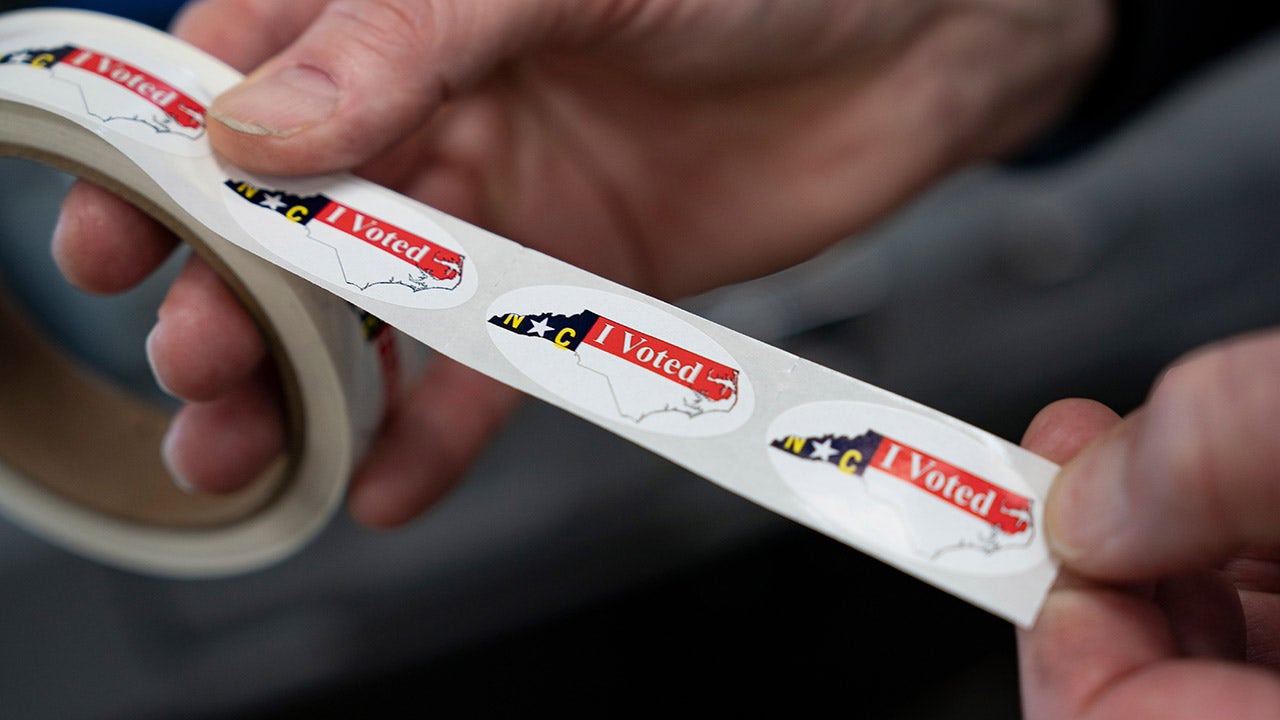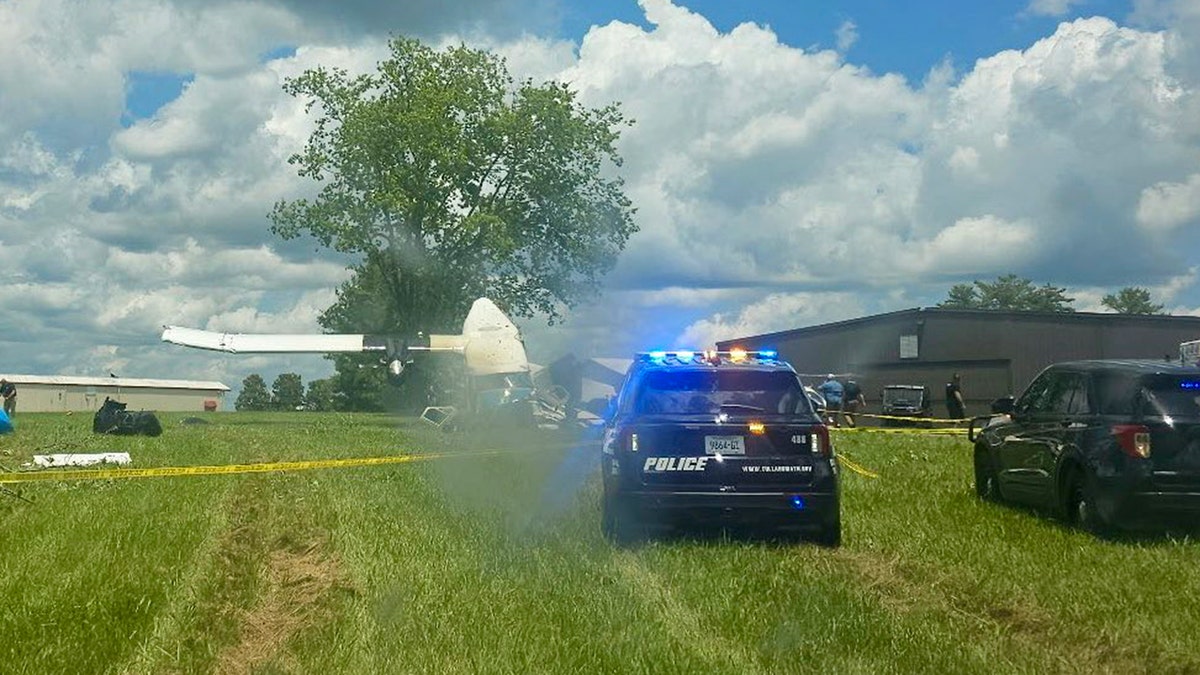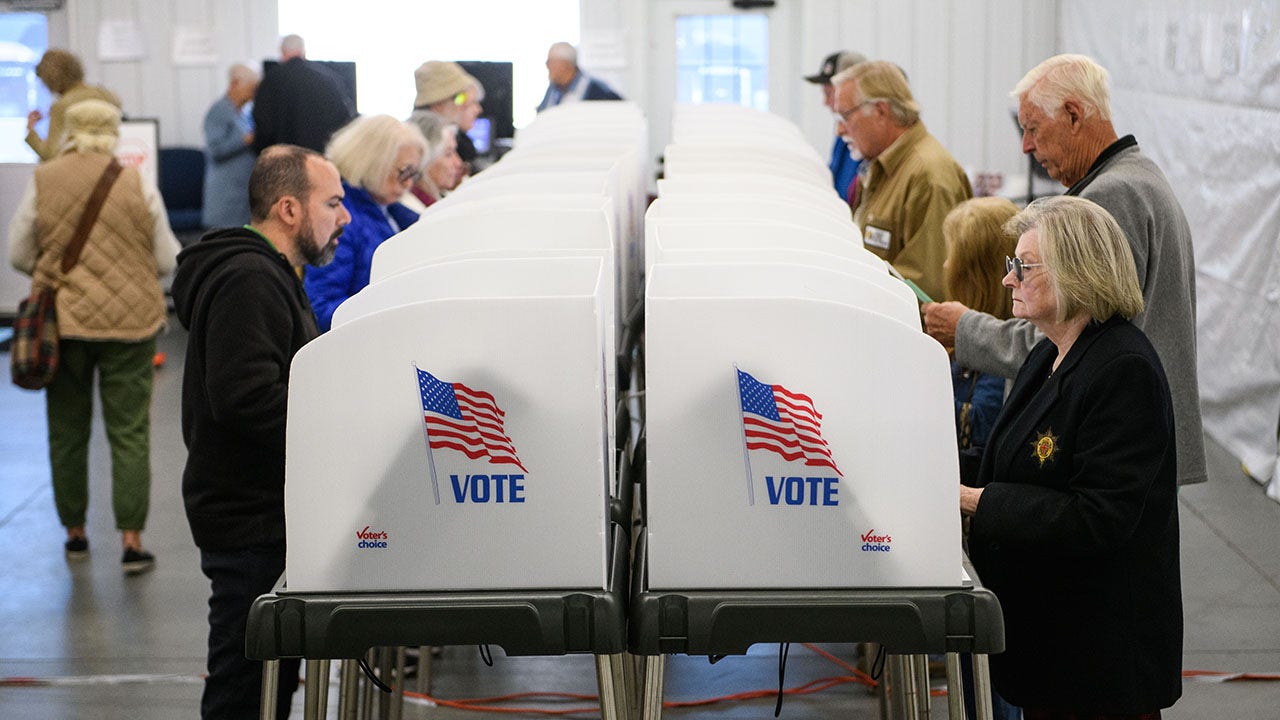Southeast
North Carolina elections board faces another lawsuit, as RNC sues swing state over noncitizen voting concerns

The North Carolina State Board of Elections (NCSBE) is facing another lawsuit, as the Republican National Committee (RNC) is suing the battleground state for allegedly opening the door for non-citizens to vote.
The lawsuit brought by the RNC and the North Carolina Republican Party in Wake County last week accuses the NCSBE and members, Alan Hirsch, Jeff Carmon, Siobhan Millen, Stacy Eggers IV and Kevin Lewis of failing to require identification to prove citizenship.
The lawsuit alleges that by violating the Help America Vote Act (HAVA) and not checking the identification of approximately 225,000 voters, the agency “is opening the door for non-citizens to vote.”
North Carolina is the first state in the nation to start voting. The battleground state starts mailing out ballots for eligible voters on Sept. 6.
“The NCSBE has once again failed in its mandate to keep non-citizens off the voter rolls, fueling distrust and jeopardizing our elections,” RNC Chairman Michael Whatley said in a statement. “We are committed to the basic principle – and commonsense law – that only Americans decide American elections. Deliberately failing to follow the law, right before our country’s most important election, is inexcusable. We will fight every day to ensure that NCSBE follows the law, cleans the voter rolls, and protects the vote for North Carolinians.”
RFK JR. SUES NORTH CAROLINA TO REMOVE NAME FROM BALLOT BEFORE ELECTION
“I Voted” stickers at a polling station at the Wayne County Public Library in Goldsboro, North Carolina, on Tuesday, March 5, 2024. (Allison Joyce/Bloomberg via Getty Images)
“This State Board continually has problems ensuring voter rolls only have verified citizens,” NCGOP Chairman Jason Simmons added. “This lawsuit will remedy their ongoing refusal to collect the required information from those who want to take part in North Carolina elections. Accountability and fidelity to following the rule of law is long overdue for the most partisan Elections Board in state history.”
The state board formerly used a voter registration form that failed to require HAVA-required identification information, such as a driver’s license number or the last four digits of a Social Security number. Election officials admitted the form was non-compliant with HAVA and eventually fixed it, but in the meantime, approximately 225,000 people registered without supplying the HAVA-required information, the complaint says.
Election officials allegedly refused to take remedial action and did not reach out to these voters to collect the required information. Instead, what the defendants “offer as a solution is a half-hearted promise that those who were ineligible to register but were allowed to anyway will naturally filter themselves out from the state’s voter rolls when they conduct other election-related activities,” the complaint says.
“This inaction misses the mark,” the lawsuit says. “Not only does this ‘solution’ fail to remedy the ongoing violations of state and federal law or account for Defendants’ responsibilities under the same, but it leaves North Carolinians to wonder how they can trust in the security of their elections, especially when those tasked with protecting their rights cannot be bothered to do what is required by law.”

Donald Trump during a campaign rally at the North Carolina Aviation Museum & Hall of Fame in Asheboro, North Carolina, on Aug. 21, 2024. (PETER ZAY/AFP via Getty Images)
TRUMP RALLIES IN NC BEHIND BULLETPROOF GLASS AT FIRST OUTDOOR EVENT SINCE ASSASSINATION ATTEMPT
“Even worse, this ‘solution’ sends the message to the millions of duly qualified and registered voters in North Carolina that their chief elections officials will shirk their responsibilities and refuse to verify whether those who vote in the state’s elections are entitled to do so in the first place,” it adds.
Reached for comment, a spokesperson for the NCSBE told Fox News Digital, “This lawsuit asks for an impossible solution.”
“Despite being aware of their alleged claims months ago, the plaintiffs have waited until two weeks before the start of voting to seek a court-ordered program to remove thousands of existing registered voters. Federal law itself prevents such removal programs if they take place after the 90th day before a federal election, which was August 7. So, the lawsuit is asking for a rapid-fire voter removal program that violates federal law,” the spokesperson said. “The lawsuit also misunderstands the data and vastly overstates any alleged problems with voter registrations. If a voter does not have a driver’s license number or the last four digits of their Social Security number populated in the voter registration database, that does not necessarily mean that they were allowed to register improperly.”
The statement went on to say that federal law “allows voters who lack one of these numbers to nonetheless be registered” and “state law also allows a registrant whose information fails to exactly match with the DMV or Social Security databases to be verified by showing another type of ID before voting.”
“And in any event, all these voters will be asked to show photo ID again when they vote this year,” the NCSBE spokesperson said.
This is the second lawsuit filed by the RNC and the NCGOP against the North Carolina Board of Elections in a matter of weeks.
Last month, Republicans sued the board for allegedly failing to check jury questionnaire responses to identify and remove non-citizens from the voter rolls, as required by law.

Democratic presidential candidate Kamala Harris campaigns at the Hendrick Center For Automotive Excellence on Aug. 16, 2024, in Raleigh, North Carolina. (Grant Baldwin/Getty Images)
Last year, the state legislature passed SB747, a major election integrity law that requires state elections officials to cross-check when an individual claims to be a non-citizen on a jury questionnaire, to make sure that same person is not on the voter rolls. The RNC and the NCGOP allege that despite the law going into effect July 1, election officials have not begun to enforce it.
In February, North Carolina’s Office of State Budget and Management reported that approximately 325,000 “unauthorized” immigrants were residing in the state.
That was out of the total of 501,000 foreign-born non-citizens in North Carolina, according to the complaint in that case.
In a statement reacting to that suit, the NCSBE spokesperson asked that the NCGOP and RNC “immediately rescind their press releases on this topic, as they will undermine voter confidence on an entirely false premise.”
“State Board staff have worked diligently with the clerks of superior court across North Carolina since that provision became law in July. In August, the superior court clerks provided the State Board with lists of voters excused from jury duty because they claimed they were not U.S. citizens,” the spokesperson said in part. “The State Board compared those lists with the North Carolina voter rolls, and nine individuals matched, across the state. If a check of state and federal databases shows any of those nine individuals have not obtained citizenship, the State Board will send them letters informing the registrants of the agency’s findings and invite them, if not U.S. citizens, to cancel their registrations to comply with the law.”
Last week, Robert F. Kennedy, Jr. also sued the North Carolina State Board for denying his request to be removed from the state’s ballot before the November election. Despite the candidate dropping out of the race and endorsing former President Trump, the board decided in a 3-2 vote to keep Kennedy’s name because nearly 2 million ballots had already been printed.
Kennedy also was unable to remove himself from the ballot in the fellow battlegrounds of Michigan and Wisconsin.
Read the full article from Here

Southeast
Runaway zebra's wild adventure comes to an end after dramatic helicopter rescue

NEWYou can now listen to Fox News articles!
An escaped pet zebra has been reunited with its owner after an eight-day search across a Tennessee county.
The Rutherford County Sheriff’s Office announced in a Facebook post on Sunday that “celebrity Zebra Ed” had been “rescued safely.”
“Rutherford County Sheriff’s Office is happy to report Tango 82 aviation crews located Zebra Ed and returned him to his owner Sunday,” officials wrote in the post.
The runaway zebra was found near Interstate 24 “in a pasture near the Buchanan Estates subdivision,” the sheriff’s office said.
ESCAPED ZEBRA CAUGHT ON CAMERA RUNNING ALONG BUSY TENNESSEE ROADWAY AS CHAOS FORCES LANE CLOSURES
Video shows the Rutherford County Sheriff’s office using a helicopter to rescue “celebrity Zebra Ed” from a wooded area near an interstate in Tennessee after 8 days on the run. (Rutherford County Sheriff’s Office)
Video of the rescue shows “Zebra Ed” being lifted high in the air by a helicopter out of a wooded area.
“Zebra Ed” originally arrived in Christiana on May 30, according to officials, and he was reported missing one day later by his owner.
The sheriff’s office didn’t say how or where the owners got the zebra, or where it was being housed at the time of its escape.
BELOVED PET MAKES DARING ESCAPE FROM ANIMAL HOSPITAL AFTER SURGERY AND TRAVELS 3 MILES TO GET HOME

“Zebra Ed” running along a highway during its eight-day escapade. (Danielle Pitre/TMX)
Deputies said he escaped into a wooded area off Interstate 24, where he was spotted by bystanders “wreaking havoc,” between Joe B. Jackson Parkway and the Epps Mill Road exits.
Deputy Ryan Keach located the zebra near the interstate and shut down one lane of traffic for travelers’ safety on May 31, the sheriff’s office told Fox News Digital.
“After the zebra crossed the interstate, deputies closed both the eastbound lanes toward Chattanooga and the westbound lanes toward Nashville,” the agency said.
BABY GORILLA FOUND IN PLANE CARGO RECOVERING AT TURKISH ZOO

A zebra was on the loose in Tennessee after escaping from its owners over the weekend, authorities said. (Danielle Pitre/TMX)
“Zebra Ed” was not spotted again for several days following the May 31 sighting, officials said.
Prior to Sunday’s rescue operation, Ed was spotted again on Friday, June 6, in a field near Ridgewood Drive in Christiana. The sheriff’s office announced that deputies saw him through a drone camera and were working with a veterinarian to safely rescue the animal.
“We don’t want to scare the zebra,” RCSO Cpl. Sean White said. “We need time to get him to calm down.”
The sheriff’s office did not disclose what is next for “Zebra Ed.”
Fox News Digital’s Louis Casiano and Jasmine Baehr contributed to this report.
Stepheny Price is a writer for Fox News Digital and Fox Business. She covers topics including missing persons, homicides, national crime cases, illegal immigration, and more. Story tips and ideas can be sent to stepheny.price@fox.com
Read the full article from Here
Southeast
Tennessee skydiving plane crashes moments after takeoff, leaving multiple passengers injured

Aftermath of Tennessee plane crash captured on video
A plane carrying up to 20 people crashed on Sunday, June 8, 2025. Emergency crews, including Tullahoma police and Tennessee Highway Patrol, responded swiftly. Several victims were airlifted to nearby hospitals. (Credit: Tennessee Highway Patrol)
NEWYou can now listen to Fox News articles!
Several people are injured after a skydiving plane crashed in Tennessee on Sunday afternoon, according to the Tullahoma Police Department.
The plane departed Tullahoma Regional Airport at approximately 12:30 p.m. and crashed shortly after takeoff, Tullahoma Community Engagement Officer Lyle Russell confirmed to Fox News Digital.
There were 20 people, including crew members, on board when the plane crashed.
“Happening Now: Coffee County – THP troopers are assisting @TullahomaPD at the scene of a plane crash on Old Shelbyville Road,” the Tennessee Highway Patrol posted on X.
FAA, NTSB INVESTIGATING AFTER 3 PEOPLE KILLED IN TENNESSEE PLANE CRASH
Tullahoma police and Tennessee Highway Patrol responded to a plane crash on Old Shelbyville Road in Coffee County, Tennessee, on Sunday. (Tennessee Highway Patrol)
During a Sunday news conference, officials said that the plane had experienced an “unknown issue” shortly after takeoff that “resulted in an impact on trees and terrain.”
Three people were taken to local hospitals for medical treatment via helicopter, while one victim was sent by ground transport for more serious injuries, Russell said. Other minor injuries were treated by first responders at the scene.
There are no fatalities reported at this time.
FAA INVESTIGATING UPSTATE NEW YORK PLANE CRASH WITH 6 PEOPLE ON BOARD

The sheriff’s office said the skydiving plane involved in a crash in Tennessee on Sunday was a DeHaviland DH-6 Twin Otter. (Tennessee Highway Patrol)
“We are grateful the injuries were limited, and our hearts and minds are with those who went through this accident and their upcoming recovery,” officials said during the news conference.
The sheriff’s office said the skydiving plane was a DeHaviland DH-6 Twin Otter.
“No ground facilities or airport facilities were damaged and there were no injuries reported from the ground,” officials added.
DELTA UP-SIDE-DOWN PLANE CRASH AT TORONTO AIRPORT MARKS NORTH AMERICA’S 4TH MAJOR AVIATION DISASTER IN A MONTH

Twenty people were on the plane when it crashed shortly after takeoff. (Tennessee Highway Patrol)
Authorities said this is an active scene and local officials will provide more updates as they become available.

Multiple injuries were reported, though the sheriff’s office said there were no fatalities. (Tennessee Highway Patrol)
Officials are urging residents to avoid the area while the investigation continues.
The FAA responded to the scene and is working with local airport personnel, officials said, adding that the National Transportation and Safety Board (NTSB) will be taking over the investigation.
Stepheny Price is a writer for Fox News Digital and Fox Business. She covers topics including missing persons, homicides, national crime cases, illegal immigration, and more. Story tips and ideas can be sent to stepheny.price@fox.com
Read the full article from Here
Southeast
Florida stands up against woke mind virus and rejects leftist university president who promised 'DEI 2.0'

University dean out of job after pushing DEI
Oklahoma state superintendent Ryan Walters and The Mom Wars’ Bethany Mandel react to UNC Asheville Dean of Students Megan Pugh being ousted from her position after admitting to pushing DEI initiatives.
NEWYou can now listen to Fox News articles!
The defeat of Santa Ono, as the sole nominee to lead the University of Florida, is a success for Florida but also for the higher education system across the country.
For a long time, our best universities fell like dominoes to the woke mind virus. Schools where rigor and merit were meant to flourish became institutions of identity politics and far-out leftism. They moved seamlessly from safe spaces to land acknowledgements to anti-Israel encampments. Education was an afterthought.
Ono was the former University of Michigan president. For Michigan, he was considered a “moderate.” A moderate in this case meant someone who promised, in his inauguration speech in 2023, to implement “DEI 2.0” and described racism as “one of America’s original sins.”
UNIVERSITY OF FLORIDA PRESIDENTIAL PICK REJECTED BY STATE BOARD OF GOVERNORS OVER PAST DEI SUPPORT
In the strategy document for that DEI 2.0, the plan was to “emphasize DEI in terms of strategic priorities; build a campuswide effort; develop institutional and constituent capacity to implement and improve DEI initiatives; fully institutionalize DEI into the university; and ensure continued progress and long-term sustainability.”
Former University of Michigan President Santa Ono had his hiring overturned by the Florida Board of Governors. (AP Photo/Carlos Osorio)
CLICK HERE FOR MORE FOX NEWS OPINION
In his previous role as president and vice-chancellor of the University of British Columbia, Ono made land acknowledgments and wrote an op-ed about the “systemic racial inequities” that “permeate the halls of academia.”
Ono clearly had a lifelong devotion to inserting leftist politics in his roles.
WATCH: UNEARTHED FOOTAGE EXPOSES MEDICAL SCHOOL ADMINISTRATORS PLEDGING TO RESIST TRUMP EXECUTIVE ORDERS
After October 7, he said he would commit the University of Michigan to “a shared commitment to pluralism, to mutual respect and to freedom of speech and diversity of thought.” That didn’t happen. Radical anti-Israel protesters were able to frequently interrupt events with no repercussions and the free speech of those who disagreed with them went unprotected.
Over the last few weeks, Ono had been on something of a rehabilitation tour. In an op-ed in early May, Ono wrote that he agreed “with the state leadership’s vision and values for public higher education” and that, “Public universities have a responsibility to remain grounded in academic excellence, intellectual diversity and student achievement. That means rejecting ideological capture, upholding the rule of law, and creating a culture where rigorous thinking and open dialogue flourish.”
But just a month earlier, in April, Ono had signed an anti-Trump letter as the administration used pressure to force universities receiving public funds to curtail illegal activities on their campuses. Ono had his name scrubbed from the letter once he was being considered for the UF role. His flip-flop had been so sudden that it was impossible to trust. Of course, people develop and change over the course of their lives, and it’s possible Ono has realized how damaging his past support for these far-left policies had been, but the recency of his conversion had given many pause.
UNIVERSITIES FACING ‘IMPOSSIBLE SITUATION’ AS TRUMP ADMINISTRATION CRACKS DOWN ON DEI: REPORT
Success has many fathers, of course, and a number of people and organizations are rushing to take credit for knocking down the Ono pick. But the real credit goes to the Florida Board of Governors, the majority of whom were appointed by Florida Governor Ron DeSantis. It took guts to overturn the unanimous vote for Santa Ono of the University of Florida Board of Trustees and stand strong against someone who was seen as a prestigious choice for UF. The BoG final vote was 10–6 with one member abstaining.
Several members of the Board of Governors asked excellent, probing questions of Ono, trying to get to the bottom of his beliefs. Vice Chair of the Board of Governors Alan Levine, in particular, asked pointed questions about Ono’s lack of response to the anti-Israel protests that had rocked the UM campus. Ono didn’t have a great answer on why he took so little action to stop the encampments, the vandalism or the interruptions of events at UM. “Antisemitism will not rear its head again,” Ono promised. Not at the University of Florida it won’t.
CLICK HERE TO READ MORE FROM KAROL MARKOWICZ
Read the full article from Here
-

 West4 days ago
West4 days agoBattle over Space Command HQ location heats up as lawmakers press new Air Force secretary
-

 Alaska1 week ago
Alaska1 week agoInterior Plans to Rescind Drilling Ban in Alaska’s National Petroleum Reserve
-

 Education1 week ago
Education1 week agoVideo: Inside Trump’s Attack on Harvard
-

 Politics1 week ago
Politics1 week agoCalifornia beach ‘Resist!’ protest pushes ‘kindness’ while calling to ‘86 47’ in anti-Trump message
-

 Technology1 week ago
Technology1 week agoMicrosoft will finally stop bugging Windows users about Edge — but only in Europe
-

 Politics1 week ago
Politics1 week agoRed state tops annual Heritage Foundation scorecard for strongest election integrity: 'Hard to cheat'
-

 World1 week ago
World1 week agoTwo suspected Ugandan rebels killed in Kampala explosion
-

 World1 week ago
World1 week agoSouth Korea’s presidential election aims to restore democratic credentials














